The Revolution
A revolution is happening that will transform the environment, society, and even you. Scientist now have the ability to modify DNA in profound new ways. That can mean damaging a gene to turn it off, correcting a mistake, or inserting a new gene.
The best case scenario is that we use this technology to cure disease, to become more healthy versions of ourselves.
S. Kiani, Co-producer, Assistant Professor, Arizona State University
AFFORDABLE TECHNOLOGY
CRISPR is a new technique that allows for precise and cheap editing of the genome. Older techniques include Zinc Finger Nucleases and TALENs. It now costs 100 times less than a decade ago to edit a gene. In parallel, it cost $2.7 billion to sequence the first human genome. Today, it costs less that a $1000. We can do edits in days that used to take months. This has fueled a biotech revolution that will create personalized medicine to cure many diseases. It is so cheap now, that you can order a kit for $150 and make edits on your own at home.
Cost per raw megabase of DNA sequence
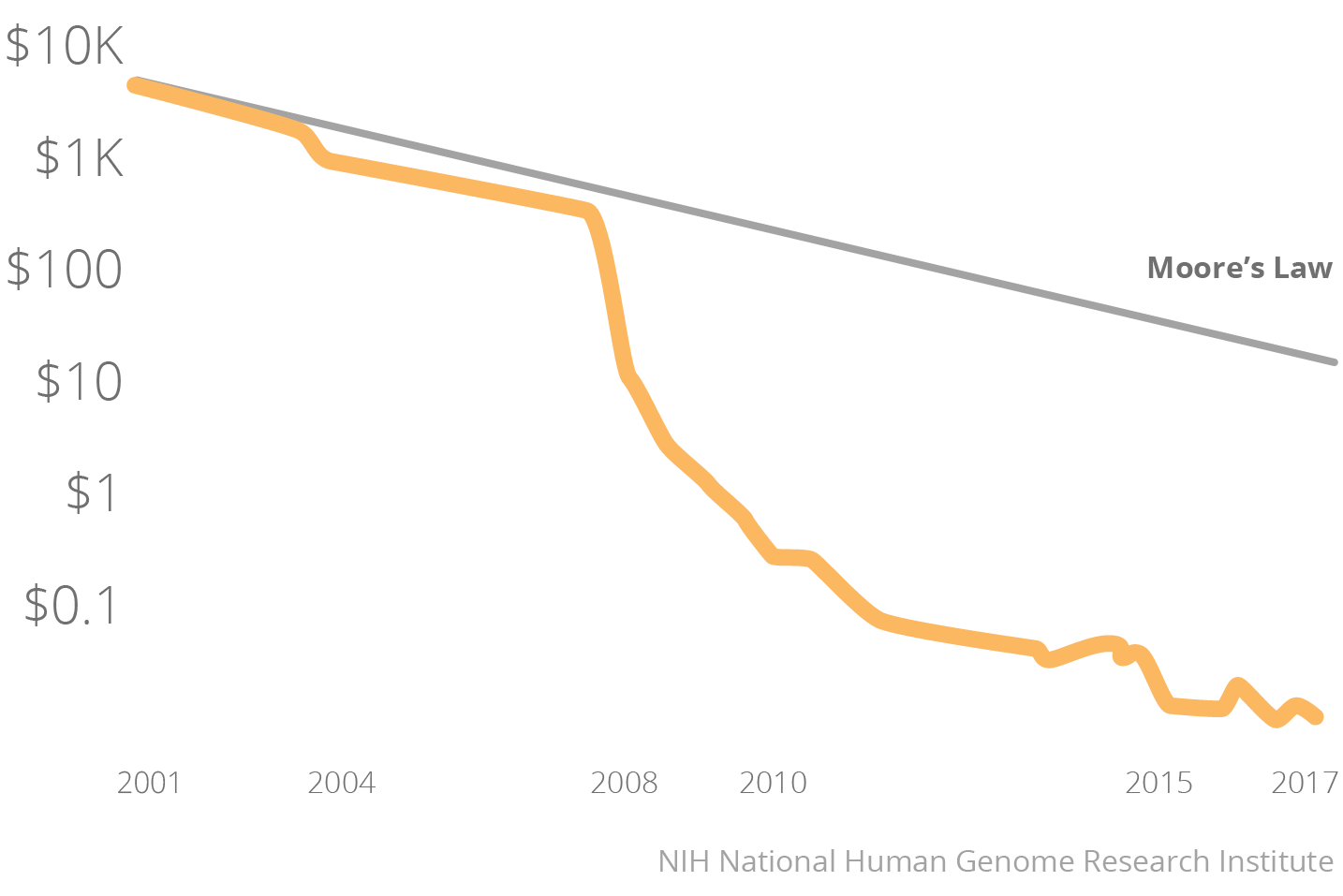
Funding for CRISPR
A sharp jump in US National Institutes of Health funding for projects involving CRISPR is a harbinger of future advances.
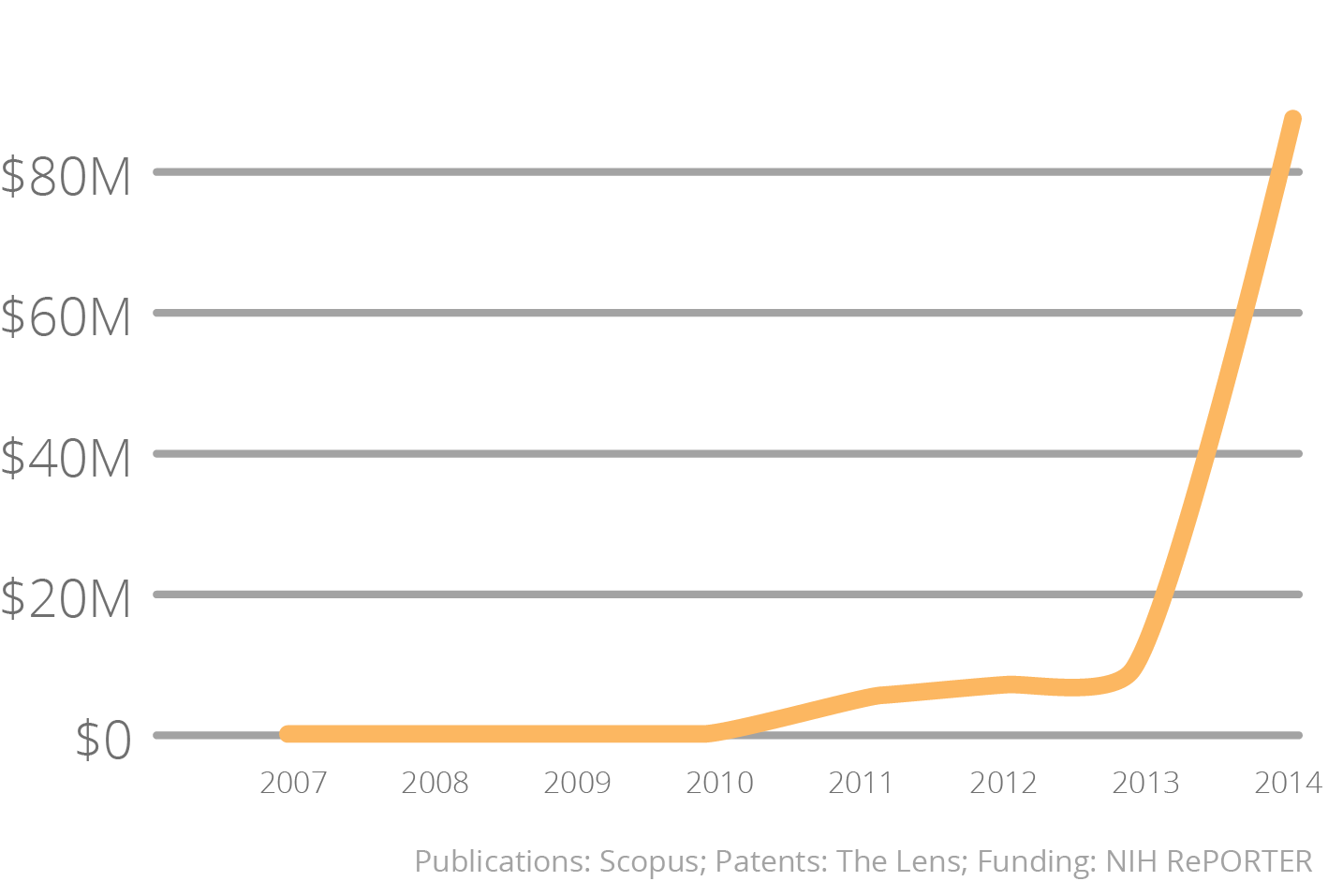
As the costs of modifying a genome goes down, the power of genetic engineering goes up. In less than a decade human application of CRISPR transformed from experimental research into clinical translation with huge implications in genetic and acquired diseases.
Evolution of Genetic Engineering
Timeline of Genetic Techniques
CRISPR/Cas9 vastly cuts down the time needed for genetic experiments.

Applying the science too soon?
A scientist in China (Jinakui He) has already genetically tried to enhanced two baby twins, Lulu and Nana, to make them immune to HIV.
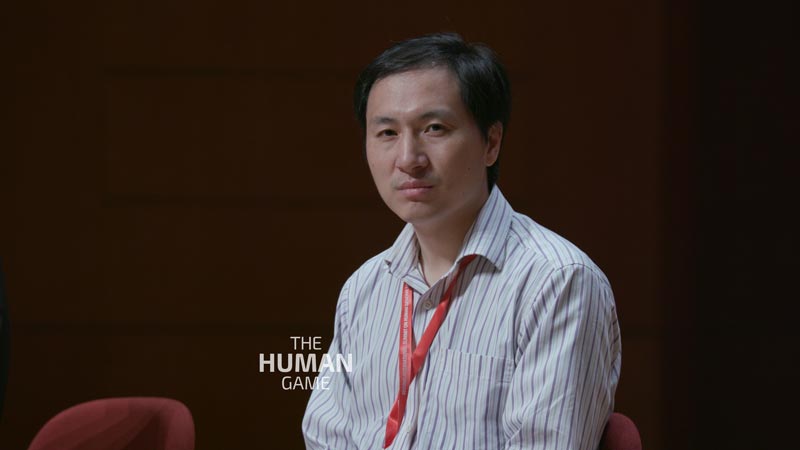
Public Attitudes
A strong area of support in the Chinese public in regards to possible human enhancement is to prevent HIV. Dr. He chose to edit the CCR5 gene, which if disabled, is shown to prevent the entry of HIV into host cells, thereby modifying the course of disease.
Chinese public attitudes of therapeutics that are acceptable for gene editing
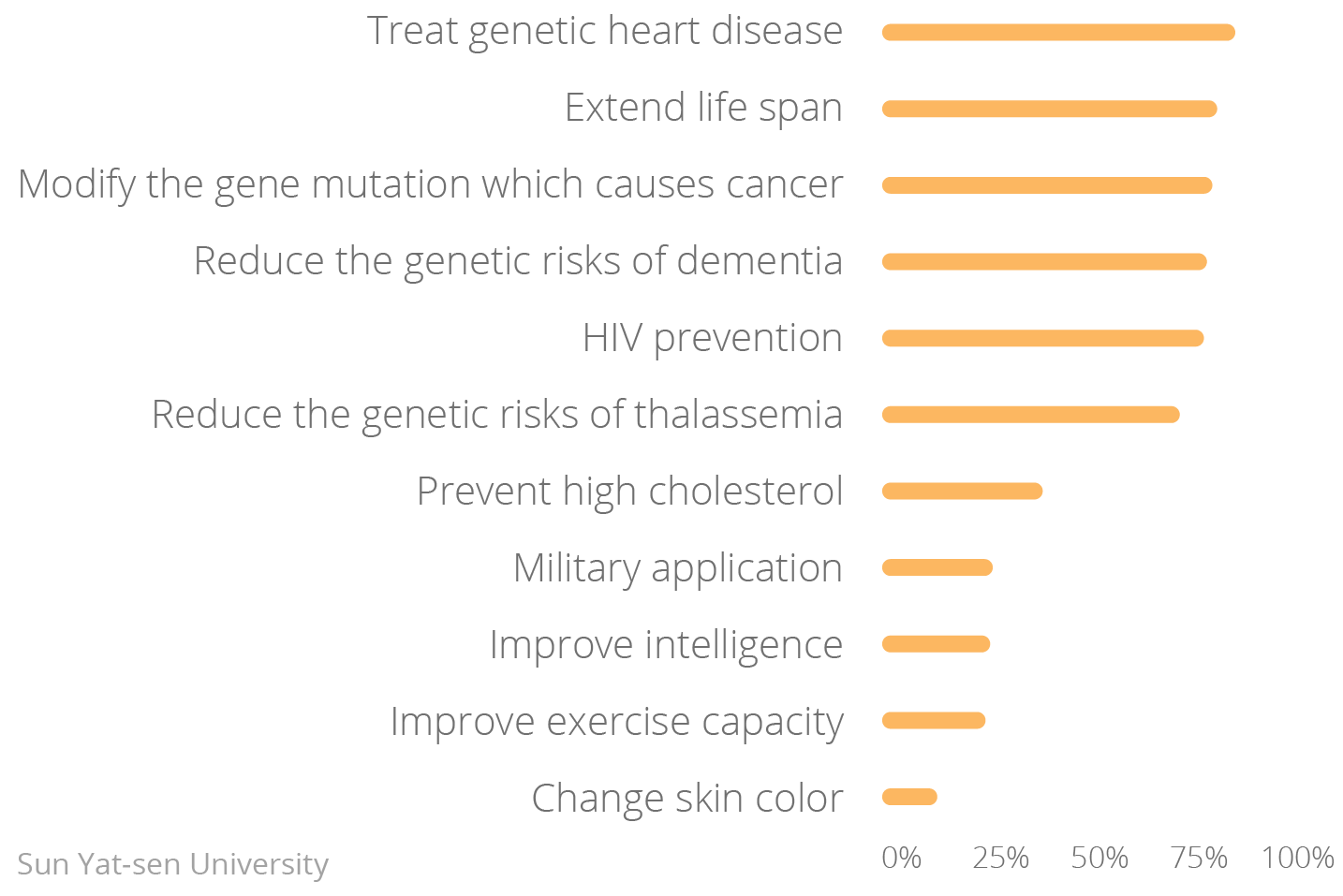
GLOBAL POWER RACE
As more countries, people, and money get into the race, decisions that shape this revolution are being made faster and faster. Where is the BioBoom happening? The US and China lead the pack. Like the computer revolution in the 1980s that lead to the Internet of today, it is hard to underestimate how governments, corporations, and individuals will transform life with this new power.
China
Most of the biotechnology research and development parks are concentrated in the Guangzhou area, where 93 of the 111 parks are based.
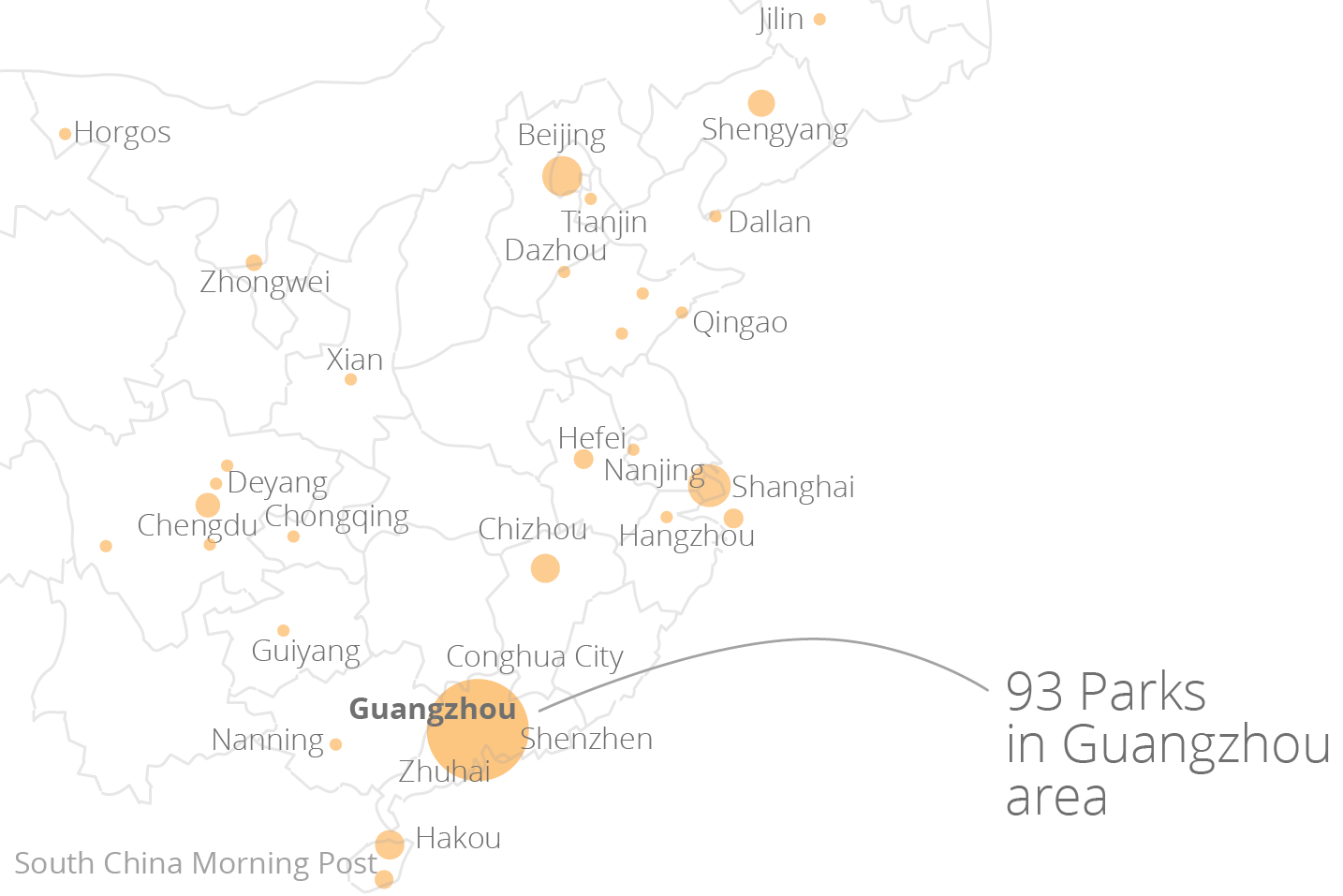
THE CHALLENGE
Imagine a future where biotech industry uses custom organisms to produce fuel or to eat pollution in our groundwater. Where one country can decide to release a gene drive that will force the extinction of mosquitoes that carry disease. Where all people check to see if their genome is compatible with a partner before having children. Where genetic disease is corrected before birth and cancer is prevented in adults. Where novel animals are created to be sold as pets.
Many scientists are concerned that the public is not part of this process. International scientific communities recognize that the social, ethical, and medical benefits (and risks) of gene editing technologies need to be better understood by the public. What kind of future will we create?
Would you enhance the intelligence of your child if everyone else was?
Should wealthy people live much longer than everyone else?
Can soldiers be genetically modified to protect them from a new era of Bioweapons?
Is the risk of a pandemic virus greater from the lab of a rogue scientist or the garage of a biohacker?
How should we draw a line between genetic modifications for health and vanity traits? Or should we draw a line at all?
With a technology this much accessible and widely adopted, how should we regulate the usage or react to unexpected developments globally?